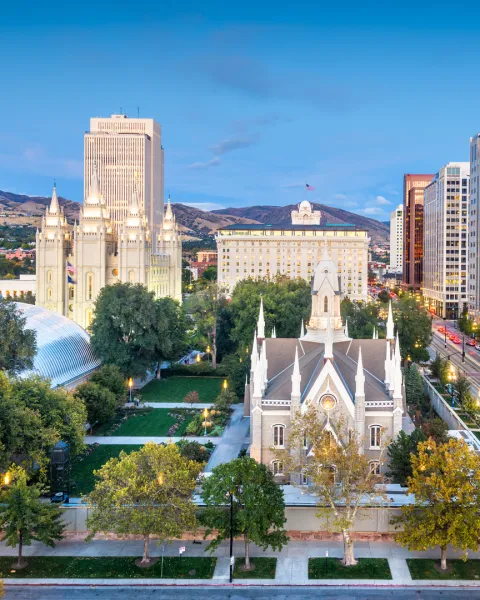The Utah Antidiscrimination Act has been amended to expand religious accommodation requirements for employers under Utah law.
The Utah Legislature passed House Bill 396 (H.B. 396), and Governor Spencer Cox signed the bill on March 19, 2024. The new law will go into effect on May 1, 2024.
Currently, Section 112 of the Utah Antidiscrimination Act requires employers to allow employees to express “religious or moral beliefs and commitments in the workplace” as long as they do so in a “reasonable, non-disruptive, and non-harassing way.” Section 112 also prohibits retaliation against employees who express religious beliefs outside the workplace “unless the expression is in direct conflict with the essential business-related interests of the employer.”
H.B. 396 expands Section 112’s workplace protections by prohibiting employers from making employees engage in “religiously objectionable expression” that the employee reasonably believes would burden or offend the “employee’s sincerely held religious beliefs.” H.B. 396’s definition of “religiously objectionable expression” is much broader than mere speech. Under the bill, “religiously objectionable expression” means “expression, action or inaction that burdens or offends a sincerely held religious belief, including dress and grooming requirements, speech, scheduling, prayer, and abstention, including abstentions relating to healthcare.”
Under H.B. 396, employees who believe they are being required to engage in “religiously objectionable expression” may request an accommodation. The employer must not compel the employee to engage in the religiously objectionable expression unless the accommodation would cause an “undue burden” to the employer. H.B. 396 defines an “undue burden” as something that substantially interferes with the employer’s “core mission” or the employer’s “ability to conduct business in an effective or financially reasonable manner.” The accommodation also cannot substantially interfere with the employer’s “ability to provide training and safety instruction for the job.” Employers with fewer than 15 employees are not required to provide scheduling accommodations under the law.
Now would be an excellent time for Utah employers to evaluate their current religious accommodation procedures for compliance with both state law and the U.S. Supreme Court’s interpretation of employers’ obligations under Title VII of the Civil Rights Act in Groff v. DeJoy.
If you have questions about this Utah law or other workplace religious accommodations issues, please reach out to a Jackson Lewis attorney.
© Jackson Lewis P.C. This material is provided for informational purposes only. It is not intended to constitute legal advice nor does it create a client-lawyer relationship between Jackson Lewis and any recipient. Recipients should consult with counsel before taking any actions based on the information contained within this material. This material may be considered attorney advertising in some jurisdictions. Prior results do not guarantee a similar outcome.
Focused on employment and labor law since 1958, Jackson Lewis P.C.’s 1,100+ attorneys located in major cities nationwide consistently identify and respond to new ways workplace law intersects business. We help employers develop proactive strategies, strong policies and business-oriented solutions to cultivate high-functioning workforces that are engaged and stable, and share our clients’ goals to emphasize belonging and respect for the contributions of every employee. For more information, visit https://www.jacksonlewis.com.


